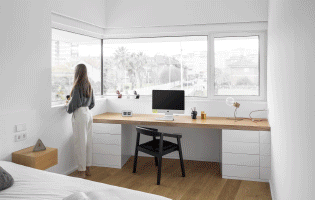
How to choose a window that isolates you from the outside noise
How to choose a window that isolates you from the outside noise
If outdoor noise is heard inside more than normal, then the house has an issue with acoustic insulation. This noise can enter the house through various locations, including windows. Therefore, by replacing them, we can regain our valued silence.
CORTIZO Windows has developed window systems capable of reducing noise by 50 db. What does this mean? It means that the noise of the rush-hour traffic could be considerably reduced when coming in through the window, turning into just a murmur.
How does noise travel through the window?
Noise can travel through a window in two ways:
DIFFRACTION
In this case, the external noise collides with the window and generates a vibration, thus sound is heard inside.
How to tackle noise travel by diffraction?
To curb noise transfer by diffraction, the first thing we should do is increase the mass of the window. This way, we will have greater acoustic insulation given the increased resistance to sound waves.
↑ GLAZING CAPACITY = ↑ GLASS THICKNESS = ↑ ACOUSTIC INSULATION
Mass is made up of the profiles, the glass and the other components; however, we must focus on the glass, since it is the element that occupies a larger surface area.
In this regard, the most important factor is the glazing capacity. The greater it is, the greater the thickness of the glass can be.
- Install laminated glass, and make sure at least one of the sheets is 6 mm thick or more.
- Use glass of different thickness, installing the thinnest sheet in the external face of the window so that different frequencies are absorbed.
- Try to have air chambers of at least 12 mm.
- Use special polyvinyl butyrals which minimize vibration to the maximum possible extent.
FILTRATION
Noise filters through tiny gaps or holes in the window or the roller shutter box. If air passes through, so does noise.
How to tackle noise travel by filtration?
If air doesn’t pass, neither will noise. Firstly, take into account that a hinged window generally offers greater acoustic insulation than a sliding window, given that it uses rubber gaskets instead of brushes, making the window more air tight.
To measure air tightness, you should check the classification obtained by the window in the air permeability tests. In hinged windows, it will be good if it is Class 4. For sliding windows, it will be good if it Class 3 or better. This information is found in the Technical file.
Choosing a good window is as important as ensuring that the fabrication and installation are carried out by the best professionals.

Request a estimate
We will inform you without obligation.



